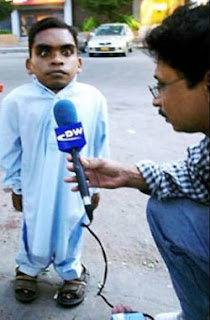Merry Kwanzaa from the Pollacks!

Habari Gani!
I realize that those of you who are white, Asian or Latino probably don’t celebrate Kwanzaa, but to be honest, that’s how it should be. Sure, we like you fine—your people have helped make America what it is today and we respect your rich heritage and culture, or whatever. But today we celebrate Umoja, or black unity, by lighting the black candle at the center of the kinara. Not the white candle or the Asian candle. Or the Latino candle. The black candle. To be honest, many of you are getting this note because, to my great embarrassment, I don’t appear to have any all-black e-mail lists lying around. And I would assemble one, but I’ve already commenced my family’s tradition of drinking from the Kikombe cha Umoja, or communal cup, alone in a room by myself. As you read this, I am possibly unconscious.
My Kwanzaa celebration revolves so closely around the Kikombe cha Umoja because Kwanzaa forces me to think of how difficult my own path of blackness has been. As Dr. Karenga reminds us, Kwanzaa is about the “seven-fold path of blackness.” And while I have always walked down the seven-fold path of blackness by “thinking black, talking black, acting black, creating black, buying black, voting black and living black,” as Dr. Karenga urges, I often wonder, “Is this black enough?” It may surprise you to learn this, but as a person who is as much as 1/128 black, I find it a daily struggle to affirm my identity as a black man in America. Despite numerous ads on local television and round-the-clock unsolicited phone calls outlining my path of blackness in exhaustive detail, black people outside my family have never accepted me as one of their own. If I were 1/128 Cherokee, I would be entitled to free healthcare and invited to tribal mixers, yet somehow 1/128 doesn’t “cut it” for black people. Am I bitter? In a word, yes. It is no fun being the black sheep of the black community. (Although as we Polacks like to say, it does make us “black squared." Unfortunately, saying this in public seems only to further alienate us from our black brothers and sisters.)
The worst part of it all is watching my poor mother. She wears a uwole, she sings traditional Swahili lullabies, she owns the Criterion Waiting to Exhale, and yet still, when she drives to Sudbury Farms to buy fresh fruit for our ceremony, she gets the distinct impression that everyone is staring at her. In fact, they make her feel like such a fraud that on her way back, she often pulls the car over to the side of the road and sobs uncontrollably for anywhere from a few minutes to a few weeks. It is truly heartbreaking to think of how many times she’s missed our weeklong celebration altogether, just because she was sobbing in a car somewhere. Of course she is a fraud—my Dad’s the one who’s 1/64 black, not her. But still, can’t we let her pretend? She’s old and she was raised in the country.
“The seven-fold path of blackness” is “think black, talk black, act black, create black, buy black, vote black, and live black.” It doesn’t say anywhere in there that you have to “look black”. So this year, when you take the African Pledge with your family, think of mine.
Happy Kwanzaa!




<< Home